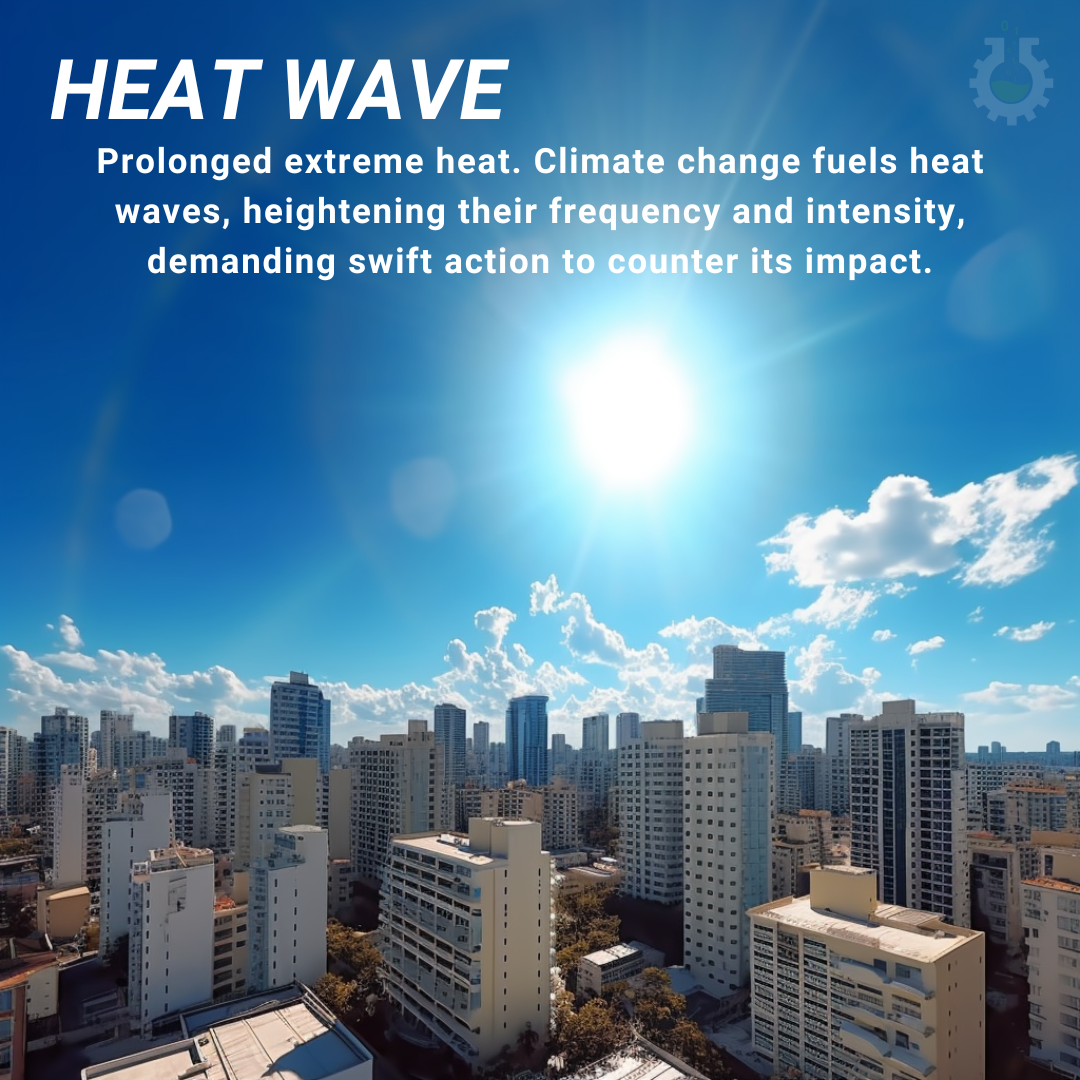August 15, 2023
Climate Change Poster Collection of the Day – Heat wave
Book a Demo
Today’s Climate Change Poster Collection features Heat wave, often marked by high humidity, are periods of abnormally and excessively hot weather. These weather phenomena are particularly prevalent in oceanic climate countries. The measurement of heat waves is typically relative to the usual weather in the area and in comparison to the normal temperatures for that particular season.
During heat waves, the presence of high-pressure systems can lead to the air beneath them heating up slowly. This process can sometimes last for days or even weeks, leading to prolonged periods of intense heat. This slow and steady increase in temperature can have a host of adverse effects on both human health and infrastructure.
Heat waves pose significant health risks, leading to illness and even death, particularly among the elderly and vulnerable populations. The excessive heat puts immense strain on the body, making it difficult for these individuals to cope. Moreover, heat waves also lead to an increased demand for electricity for cooling, putting additional pressure on power grids and potentially leading to outages.
To combat the detrimental effects of heat waves, certain adaptations can be made. These include the use of air conditioning, awnings, and the use of light-colored or reflective surfaces. These measures can help reduce the impact of the heat and provide some respite from the oppressive temperatures.
However, the implications of heat waves extend far beyond mere discomfort. They are deadly weather conditions that can cause deaths through hyperthermia, cardiovascular disease, and respiratory issues. The stress of extreme heat on the body can lead to a variety of health problems, some of which can be fatal.
Urban areas are particularly hard-hit during heat waves due to the heat island effects. The heat-absorbing properties of asphalt and concrete in these areas can significantly increase the ambient temperature, intensifying the effects of the heat wave.
The frequency and severity of heat waves are predicted to increase with global warming. This escalation in heat waves could potentially lead to droughts and wildfires, which would further intensify the effects of heat waves. As such, measures to mitigate global warming and adaptations to cope with heat waves are crucial in protecting populations and infrastructure from the devastating effects of these weather phenomena.
Discover an inspiring collection of climate change posters.



